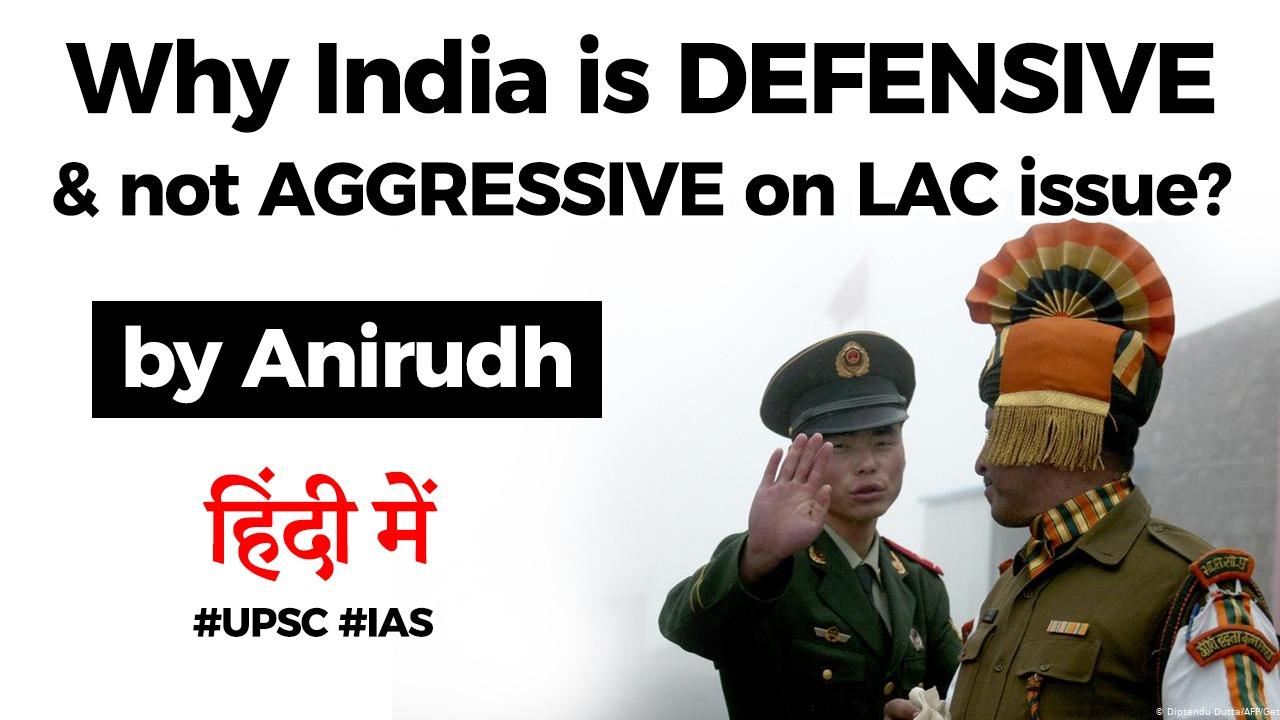Table of Contents




WHY IN NEWS
- India is trying to appease china with it’s appeasement policy.
- India is appeasing china to weaken China’s ties with Pakistan.
- It will avert the danger of two front war with China and Pakistan.
RECONCILIATION OR APPEASEMENT
- In 2014 India hosted Chinese president Xi Jinping soon after Narendra Modi became Prime Minister. Meeting was declared successful on economic front.

RECONCILIATION OR APPEASEMENT
- At the same time PLA troops invaded into southern Ladakh ’s Chumar valley and did not withdraw until weeks later, after India agreed to demolish local defensive fortifications .
- This was the beginning of a policy not of reconciliation, but of appeasement, the costs of which continue to mount.

INDIA’S NEXT ATTEMPT TO RECONCILE CHINA
- In 2015 Narendra Modi visited Beijing . Modi announced that India will issue electronic tourist visas to Chinese nationals upon their arrival in India.
- He also delisted China as a “country of concern,” in an effort to court Chinese investment.

CHINA’S RESPONSE
- In response to India’s reconciliation effort, China blocked India’s bid to have JeM chief Massod Azhar designated terrorist by UN for his involvement in terror attack at Pathankot airbase.

THE DOKLAM
- Mid-2017, Indian troops were pushed into another standoff with the PLA. PLA attempted to build a road to the India border through the uninhabited plateau that Bhutan regards as its own territory. The standoff lasted 73 days, before China and India agreed to disengage.

THE DOKLAM
- India declared the Doklam disengagement a tactical victory. But over the next several months, China steadily expanded its troop deployments by building permanent military structures, thereby gaining control of much of Doklam.

ANOTHER EFFORT TO APPEASE CHINA: AVERTING DALAI LAMA
- In 2018, in another attempt to appease china, Indian government ordered officials to stay away from Dalai Lama

CHINA CONDEMNS INDIA
- In response to India’s appeasement china issued statement condemning bifurcation of Jammu and Kashmir.


DECEPTIVE ACT OF CHINA IN LADAKH
- Recently in ladakh standoff China used deception to gain numerical strength over Indian security forces deployed in that region.
- China used troops that were engaged in a war game on the Chinese side and rushed them to the border with India in trucks used to ferry mud for an airbase project not far off from Indian areas.
- Sources said that Chinese troops that were taking part in a military exercise on their side of the border under the Lhasa Military District were quickly sent in heavy vehicles to the Indian borders.


INDIA’S “DEFENSIVE WEDGE STRATEGY”
- Indian leaders have pursued a “defensive wedge strategy” to balance the power politics of Asia.
- In wedge strategy India seeks to drive a wedge between two allied states China and Pakistan.
- So that it can focus its capabilities on the more threatening western border of India with Pakistan.
CHINA’S “ENGAGEMENT WITH CONTAINMENT” STRATEGY
- According to defence analysts, China is working on “”engagement with containment” strategy with India.
- On one hand China wants economic engagement with India through dialogues to maintain growth of its export based economy.

CHINA’S “ENGAGEMENT WITH CONTAINMENT” STRATEGY
- On the other hand it is trying to contain India by frequent military standoff along the disputed border and inciting India’s neighbours against it

QUESTIONS….
- Do you think India’s policy to appease china has failed and India has no other option than preparing itself for two front war?
- Shouldn’t India disengage itself with China and start containing China in it’s neighbourhood with help of U.S.A., Australia and Japan?
Latest Burning Issues | Free PDF






















 WhatsApp
WhatsApp